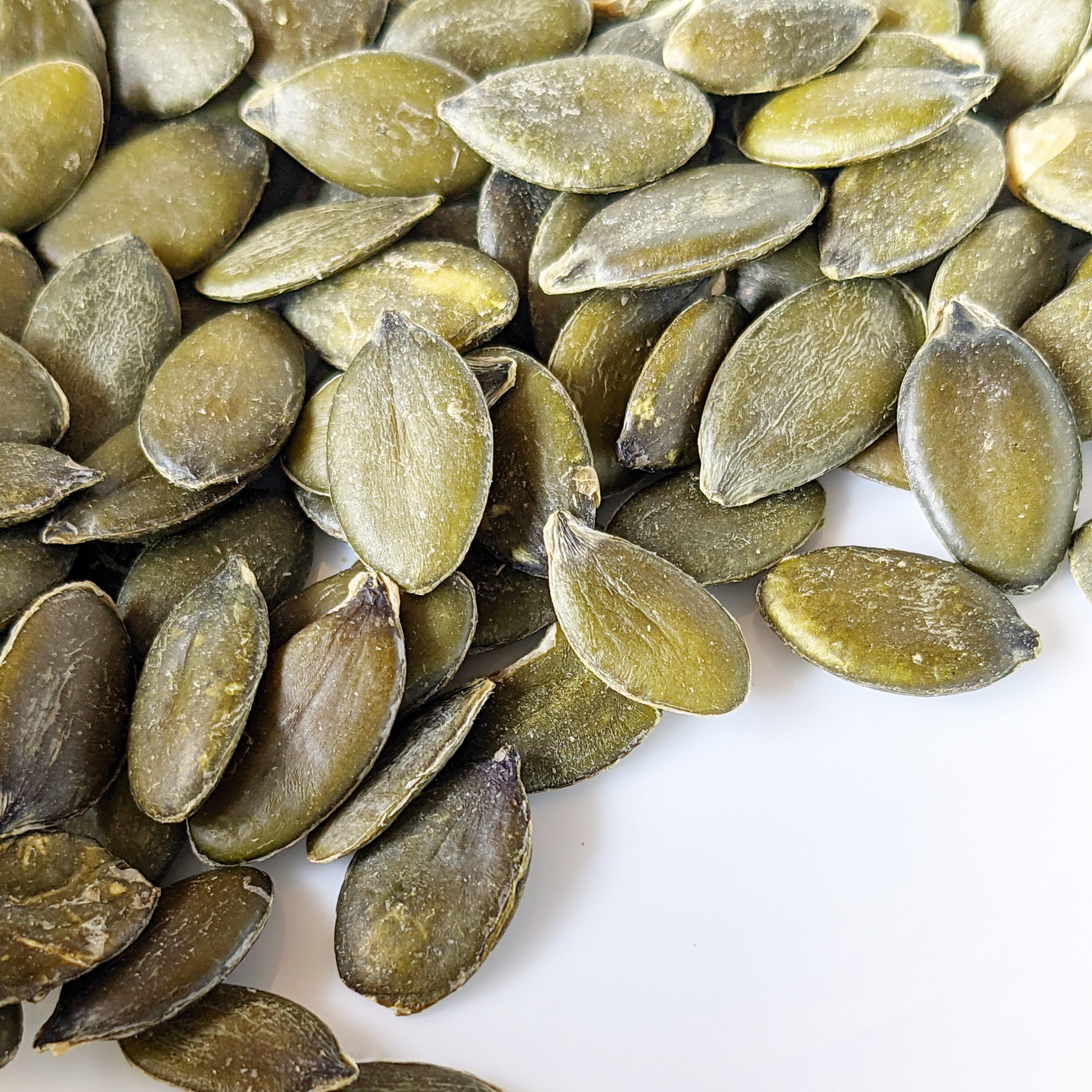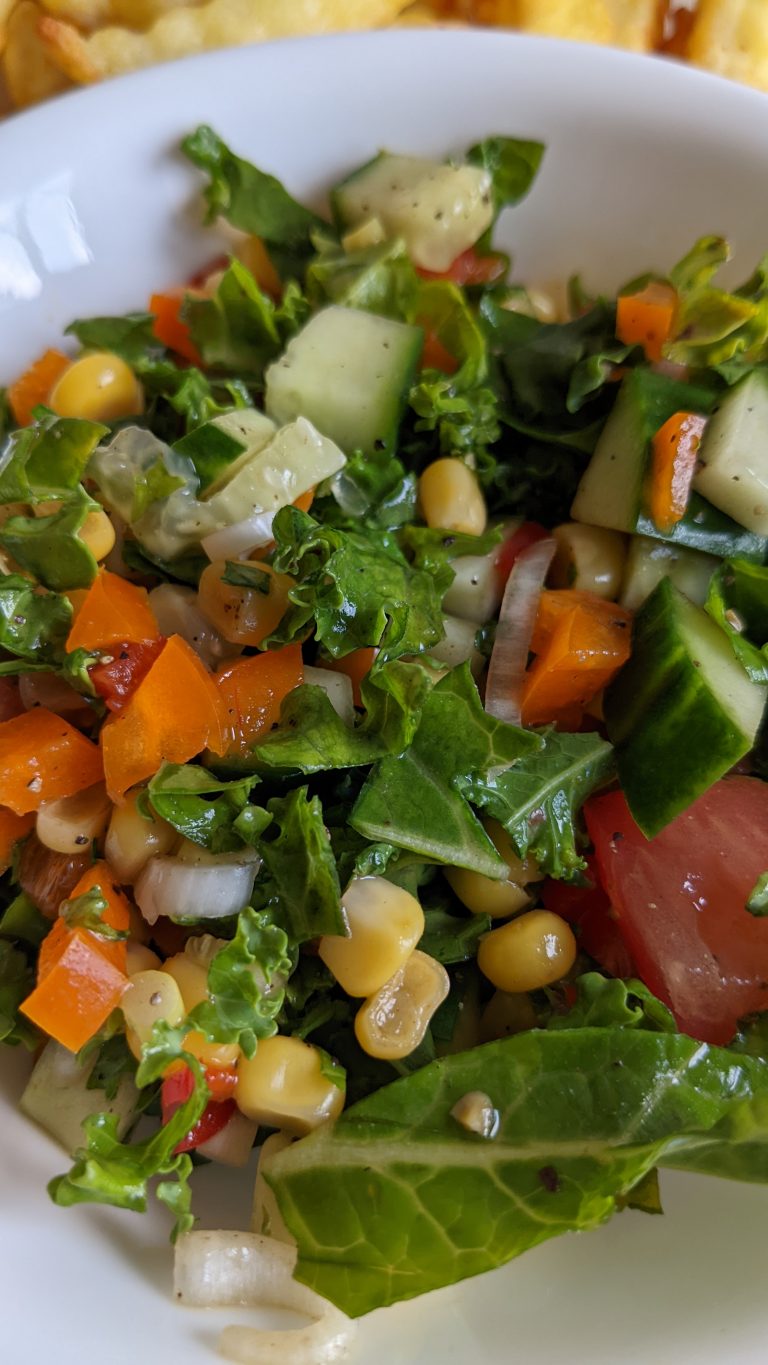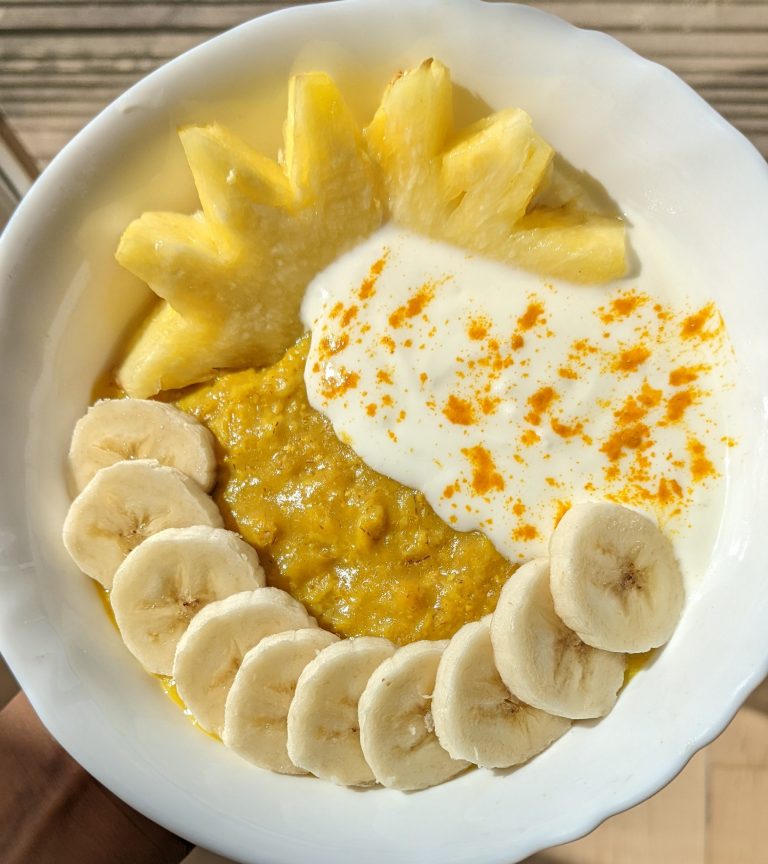Pumpkin Seeds Nutrition Benefits
What are pumpkin seeds?
Pumpkin seeds are the flat green edible seeds of a pumpkin. You might say but pumpkin seeds are white? Yes, they have a white outer husk, and once it’s removed, we have a flat oval green pumpkin seed 🙂
Pumpkin seeds have many nutritional benefits. In some cultures, they are roasted and served as a snack. In Mexico, pumpkin seeds are know as Pepitas and they are salted and also spiced after roasting! Yum yum 🙂
Why was I interested in pumpkin seeds?
As a vegetarian, it is difficult to get Omega 3 fats in my diet. Pumpkin seeds are a rich source of omega 3 which are essential for good eye and brain health.
Secondly, my sleep quality was not great. Pumpkin seeds are also known to be high in magnesium which can aid better sleep.
So for me, it was killing two birds with one stone.
What nutrients do pumpkin seeds have?
Yes, pumpkin seeds are not just great for snacking, they are packed with many unusual nutrients that you may not get from your normal diet, especially if you’re vegetarian.
According to healthline.com, one tablespoon of sunflower seeds has approximately the following nutrients:
- Protein: 1.5 grams
- Fat: 2.79 grams (6 of which are omega-6s)
- Vitamin K: 3% of the RDI
- Phosphorus: 7% of the RDI
- Manganese: 9% of the RDI
- Magnesium: 8% of the RDI
- Iron: 5% of the RDI
- Zinc: 3% of the RDI
- Copper: 4% of the RDI
They also contain a lot of antioxidants and a goos amount of polyunsaturated fatty acids, potassium, vitamin B2 (riboflavin) and folate.
Most of the minerals above are difficult to get from a western diet and hence consuming these seeds would be a good addition to your diet.
What are the nutrition benefits of pumpkin seeds?
PUMPKIN SEEDS ARE ANTI-INFLAMMATORY
Pumpkin seeds are a good source of anti-oxidants which can help prevent inflammation and reduce cell damage which can lead to pre-mature ageing.
Reduced inflammation can prevent chronic diseases such as arthritis, heart disease, Alzheimer’s disease etc.
PUMPKIN SEEDS PROMOTE HEART HEALTH
Pumpkin seeds are a good source of Omega 3 fatty acids (alpha-linolenic acid) which could be beneficial for the heart.
The high magnesium content in pumpkin seeds can also help lower blood pressure which reduces the chance of a stroke.
PUMPKIN SEEDS IMPROVE YOUR SLEEP QUALITY
Pumpkin seeds are known to contain magnesium which can improve sleep quality by reducing stress and anxiety. They are a good source of tryptophan which can help you sleep better. Furthermore, zinc can also affect sleep quality and duration.
PUMPKIN SEEDS MAY HAVE ANTI-CANCER PROPERTIES
Studies have shown that pumpkin seeds may stop or slow down the growth of breast and prostate cancer cells due to their anti-oxidants.
However, more studies are required to confirm this.
PUMPKIN SEEDS MAY BENEFIT SEXUAL, PROSTATE AND BLADDER HEALTH
Pumpkin seeds may improve sperm quality as they contain zinc which can support male fertility. In fact, pumpkin seeds have traditionally been used as an aphrodisiac in some places.
Pumpkin seeds may relieve symptoms of benign prostatic hyperplasia (BPH), a condition in which the prostate gland enlarges, causing problems with urination. This can improve quality of life for men.
Pumpkin seeds can also help with over-active bladders which can help with urinary dis-orders.
PUMPKIN SEEDS MAY BE GOOD FOR HEALTHY BONES
Magnesium contained in pumpkin seeds is also good for healthy bones as it gives them their physical structure.
PUMPKIN SEEDS MAY BE GOOD FOR SKIN AND EYE HEALTH
Pumpkin seeds contain squalene, an anti-oxidant similar to beta carotene.
Squalene appears to play a role in protecting the body against radiation and UV exposure. It may also play a role in retinal health.
PUMPKIN SEEDS MAY HELP WITH HAIR LOSS
According to some studies, the the fatty acids, vitamin E, and phytoestrogens found in pumpkin seed oil can help boost hair growth when applied to the scalp or taken orally. Hence, consuming pumpkin seeds may help with male pattern baldness.
How do I eat pumpkin seeds?
You can eat pumpkin seeds by roasting them and even salting and spicing them up!
Pumpkin seeds can easily be added to your diet. Add them to your cereal, oatmeal, yoghurts, smoothies, milkshakes or even salads.
You can also add pumpkin seeds to your soups and use them when baking bread or cakes.
I will share various recipes where you could add pumpkin seeds so please keep visiting my blog.
How many pumpkin seeds do I eat daily?
I would suggest eating about 1-2 tablespoons of pumpkin seeds daily. I consume just about 1 tablespoon a day as I tend to consume many other foods that provide some of the nutrients above.
Do not consume more than a handful a day just to be on the safe side.
Am I allergic to pumpkin seeds?
You may be allergic to pumpkin seeds though it is rare. I would recommend checking with your GP.
Allergy symptoms may include:
Chest tightness
Hives
Vomiting
How do I store my pumpkin seeds?
Pumpkin seeds have a high fat content and should therefore be stored in an airtight container or the fridge in a cool dark and dry place.
Consume them regularly so that they do not become rancid. Pumpkin seeds will keep for about 3-4 months, maybe more if stored in the fridge.
Pumpkin seeds nutrition benefits
I hope you enjoyed my blog post on the nutrition benefits of pumpkin seeds. It contains information from a lot of sources mainly from my reading and research online about pumpkin seeds, listening to podcasts etc. Please feel free to comment incase you have any more information to add, subtract or any questions 🙂








One Comment